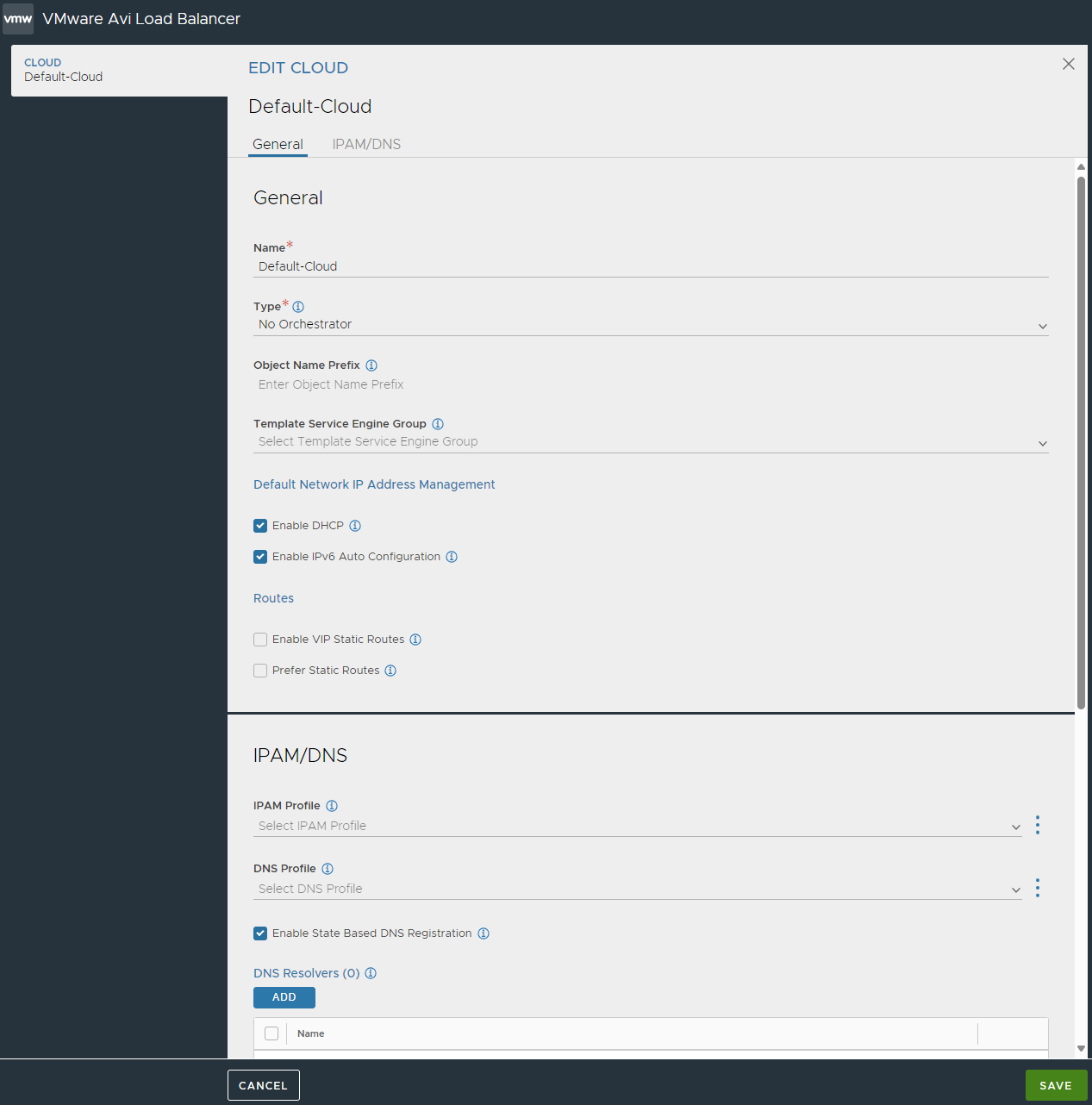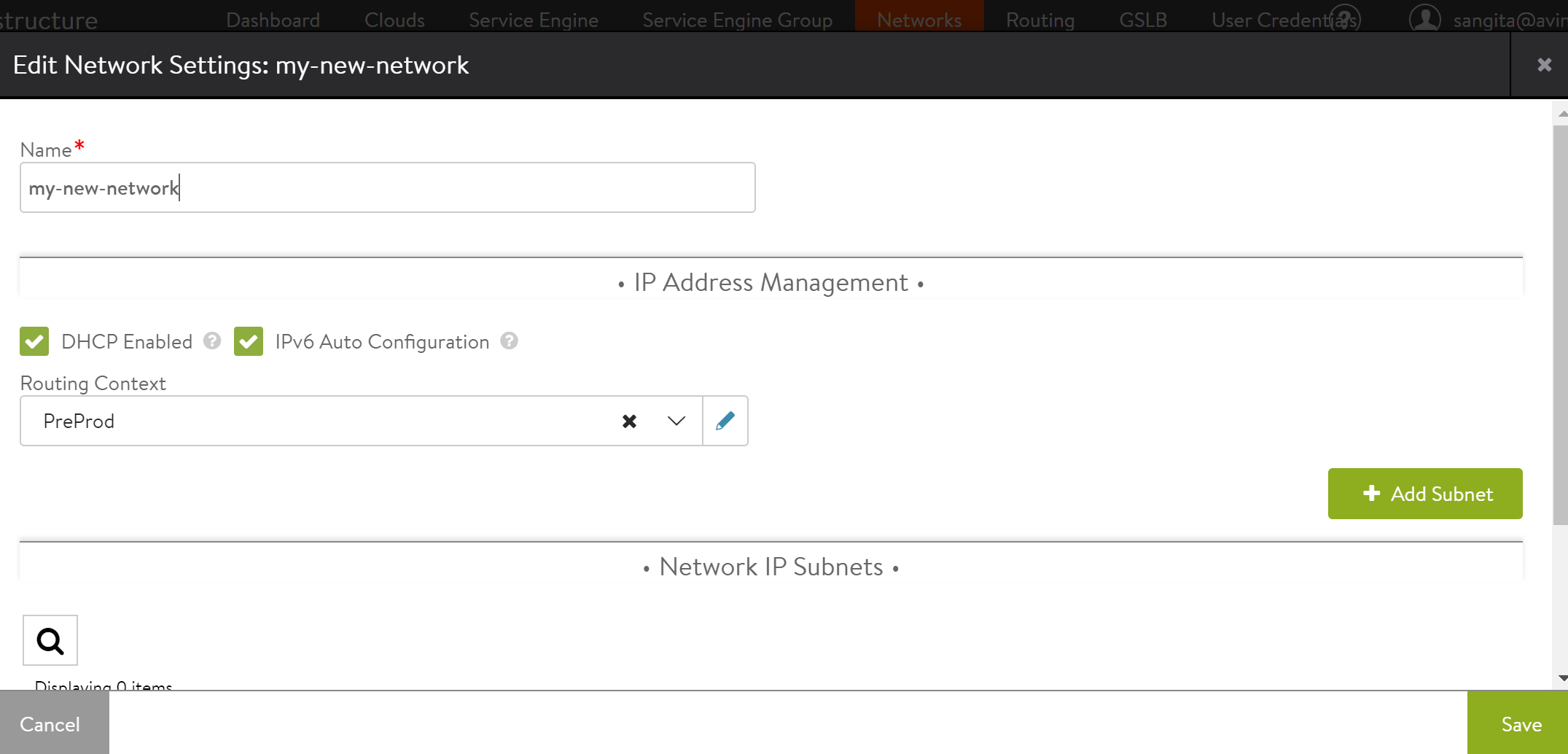This topic is applicable only for static IP address allocation.
Each Avi Load Balancer SE deployed in a VMware cloud has 10 vNICs. The first vNIC is the management vNIC using which the Avi Load Balancer SE communicates with the Avi Load Balancer Controller. The other vNICs are data vNICs and are used for end-user traffic.
After spinning up Avi Load Balancer SE, the Avi Load Balancer Controller connects the Avi Load Balancer SE’s management vNIC to the management network specified during initial configuration. The Avi Load Balancer Controller then connects the data vNICs to virtual service networks according to the IP and pool configuration of the virtual services.
The Avi Load Balancer Controller builds a table that maps port groups to IP subnets. With this table, the Avi Load Balancer Controller connects Avi Load Balancer Controller SE data vNICs to port groups that match virtual service networks and pools.
After a data vNIC is connected to a port group, it needs to be assigned an IP address. For static allocation, assign a range of IP addresses to the applicable port group. The Avi Load Balancer Controller selects an IP address from the specified range and adds the address to the data vNIC connected to the port group.
Configure IP address pools for networks hosting Avi Load Balancer Service Engines by following the steps mentioned below:
Navigate to Infrastructure > Clouds > Default-Cloud. Click on edit icon.

Find a port group and IP subnet on which the DHCP service is not available.
Select the port group by clicking on the edit icon.
Select Static under Network IP Address Management.
Select the IP Subnet by clicking on the edit icon.
Specify the static IP address or the range of IP addresses.
